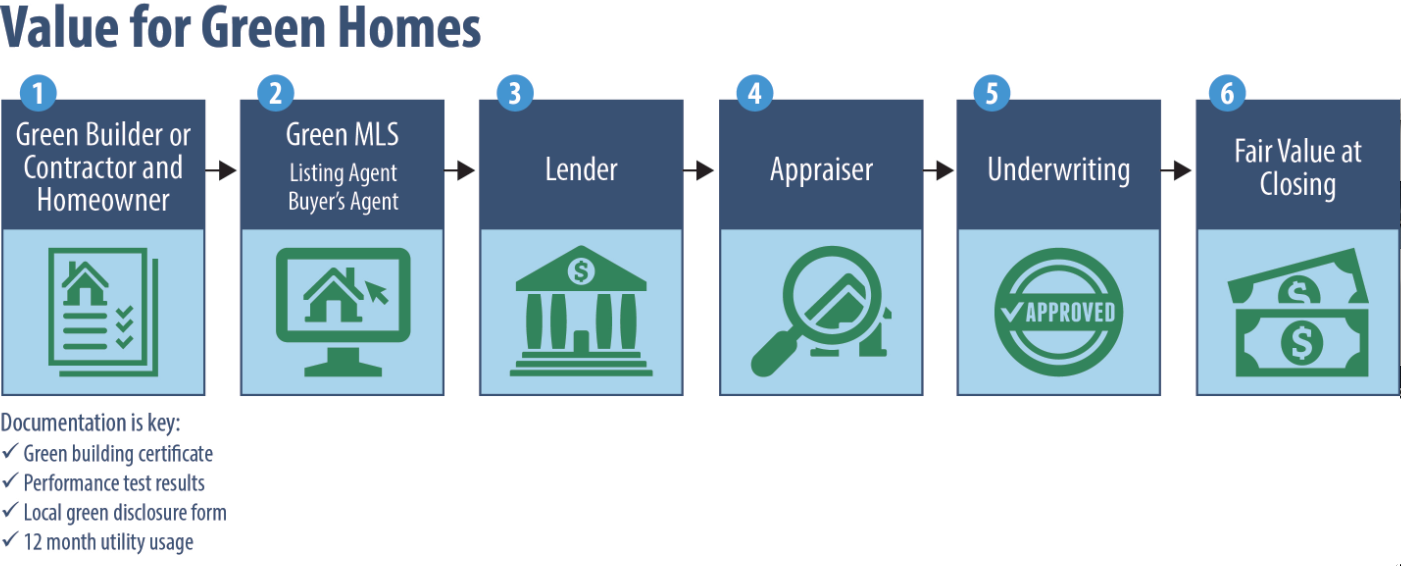Implementing green data fields in residential multiple listing services (MLS) throughout the country is still at the early adopter stage. Of the roughly 900 MLSs in service throughout the country, only 20% have adopted green data fields.
Many people believe that the multiple listing service is a single, monolithic, centralized database of real estate transactions that has stored the essential information for residential sales across the country. Nothing could be further from the truth. The 900 MLSs servicing the real estate sales industry are most often owned by local real estate boards – in Massachusetts alone we have 15 local boards which provide continuing education opportunities for members, promote and protect real property ownership, as well as govern their local membership under the guidelines expressed in the National Association of Realtors® (NAR) Code of Ethics.
Only a few of the local MA boards own their MLS, many have decided to work under the larger umbrella of MLS Property Information Network (MLS PIN) located in Shrewsbury, MA. MLS PIN is the predominant listing service in the region, and under the guidance of its CEO and President, Kathy Condon, was one of the earliest adopters of green data fields in 2009.
During the summer of 2013 a group of stakeholders from the Residential Green Building Committee of the Massachusetts Chapter of the USGBC decided to take a detailed look at fields MLS PIN had adopted in 2009 . The committee quickly realized that the fields PIN adopted needed a revision. The rapidly evolving marketplace of new technologies designed to make new and existing homes more energy efficient required an update to keep the fields relevant.
Arguably the most important field that was added to MLS PIN’s update was the field for a HERS Index Score and the date that it was completed. Although fans of the NESEA Master Blog series need no education about the HERS Index Score or how important it is to have the field added to residential listings in Massachusetts, a quick overview of both might be helpful for the casual reader. The HERS Index Score is a third-party verification of the energy efficiency of a new or existing home. The score gives the home an energy asset rating based on the inherent characteristics of the building’s envelope and fenestration, ductwork, heating and cooling systems, and the water heating system.

The importance of an energy asset rating in the real estate transaction cannot be understated. Occupancy behavior, particularly by residential end-users of power to heat, light, and cool their homes, can be extreme. Asking the seller to provide documentation of their heating and cooling costs can give a false impression of the inherent energy efficiency of the building. Energy asset ratings like the HERS Index Score, the DOE Home Energy Score, or MA DOER Home MPG Scorecard, all have the ability to provide an accurate metric for home buyers or lessors considering their next move.
As demand rises for homes that offer buyers not only lower operating costs, but also healthy living spaces and have a lower environmental impact, a home’s inherent energy efficiency delivered in a third-party verified energy asset rating is essential to a transparent marketplace. Kudos to MLS PIN for their willingness to implement the HERS Index Score to their database of residential properties here in Massachusetts.
Our Mission
NESEA advances sustainability practices in the built environment by cultivating a cross-disciplinary community where practitioners are encouraged to share, collaborate and learn.






Add comment